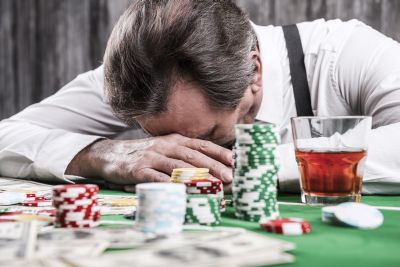
Poker is the ultimate gambling game. While all games that have an element of risk are considered gambling, there is something about poker that quickens the blood of anybody who plays it -- especially when the stakes are high.
Anyone who has watched the World Series of Poker or World Poker Open on television is familiar with Doyle Brunson. He is probably the best known and most easily definable poker player in the wrld, with that creased white stetson, that genial grin and his ability to read players and know when to raise, when to just call and when to fold.
During an interview for a gambling publication several years ago, Brunson gave me the best definition of no-limit Texas Hold'em that I have ever heard 'No-limit Texas Hold'em is hours of boredom interspersed by moments of sheer terror,' said Doyle.
Nobody understands this principle better than Brunson. Don't forget, he played no-limit poker before television and the camera beneath the table made it popular. During those early years, no-limit poker players didn't bet chips -- they bet stacks of hundred dollar bills. One bet might represent an average person's salary for years, and people like Brunson did it in a heartbeat without even thinking about it.

When you study the betting patterns of professionals like Brunson, Phil Ivey, Phil Hellmuth and some of the other mega-winners you find a curious pattern to their strategy at the poker table.
They don't fire bolts of lightening like Thor or Zeus. They develop tacts of hit and run, skirmish, prod bets and then the ultimate -- all out war where no prisoners are taken alive.
During the Indian wars, the Apaches, Blackfoot and Cheyenne tribes would rarely attack a U.S. outpost or Army comany in an all-out assault. They realized that could be suicide since Armies almost always had backup troops nearby that they could use to counter-attack the Indians.
This is why Indian braves preferred to conceal themselves in rocks or shadows, or attack out of the sun or swoop down on an Army camp during the middle of the night when everybody except the guards were sleeping.
If you expect to win consistently at poker, you will have to try simiar tactics. Don't always play your cards the same way. If you have high pairs like aces or kings, you should raise 70 percent of the time. But on occasions you should only call just to see how the hand plays out.
You will often win your biggest pots this way.
I rarely slow-play a big pair or A-K suited. Misplaying big cards like these can result in the biggest losses you will experience at a poker table. There is risk involved. But with the risk comes promises of great rewards. It's your choice. Mix up your game. Or as Doyle Brunson often advises, 'Learn to change gears.'
When I am playing for real money, I often imagine myself as a soldier on a lonely outpost, armed only with a rifle and a limited supply of ammunition. In such a case, you need to hit an approaching enemy hard and fast. You also need to know when to run and when to hit again. You must do this in a way that is not obvious to the other players. Learn deception. It is a poker player's ultimate weapon. Without perfecting it, you may as well bid your chips adieu.
Finally, every poker player will eventually end up in all-out war. This is essential to the game. If it happens to you, will you act like a wimp and merely call or fold when the action heats up -- or will you take on the proper kind of fury that literally beats the other players into submission and assures you of a victory.
Nobody wins a major poker tournament by being just a calling station.
Develop your own betting and raising strategy. Make it unique. Don't follow anybody's book. Make it your own. As a top salesman once told me, 'In order to be a super-salesman, you need to plan your work and work your plan.'
This works for any gambling game, by the way, not just poker.
If you have other poker strategies that have won for you, tell me about them. I will share your thoughts with our readers. Thanks for your comments. They mean a lot to me and our readers.
Author: Geno Lawrenzi Jr.
(Geno Lawrenzi Jr. is an international journalist, magazine author and ghostwriter. If you have a unique gambling story to share with him, you may qualify for a cash award. Send your story with all the details to glawrenzi@gmail.com ).
Your feedback
Please enter your comment.
Your comment is added.




